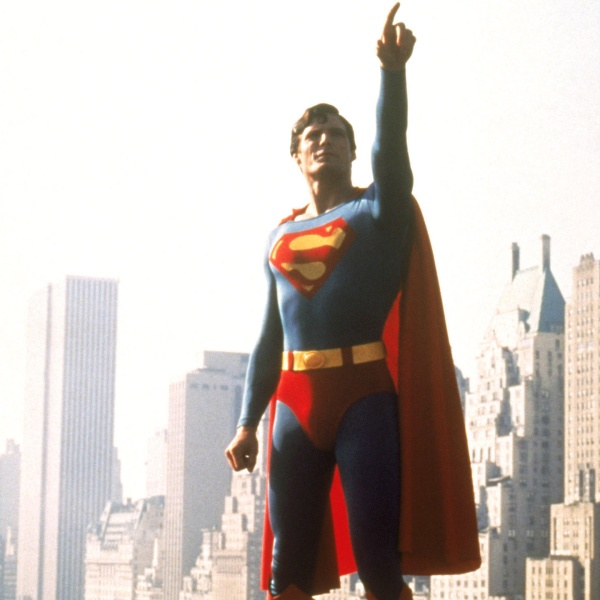
It’s the middle of the month, so you know what that means: an announcement from The Criterion Collection about what they’ve got coming next, and September looks like yet another strong month from the boutique label.
The big name title of the month is Olivier Assayas‘ “Carlos.” The five-and-a-half hour epic about famed terrorist Carlos The Jackal — portrayed in a riveting lead performance by Edgar Ramirez — will be spread across two BluRays or four DVDs. Unfortunately, the extras are a little sparse with the set, featuring interviews with Assayas, Ramirez and DoPs Denis Lenoir and Yorick Le Saux; a twenty minute making-of on the OPEC raid sequence, trailer and the standard booklet of essays. But hell, after 339 minutes, you’ll need a breather anyway.

Most exciting for cinephiles (and for us), Criterion finally closes a big gap in their collection by finally adding two movies from the legendary director Claude Chabrol into their collection. Both starring Jean-Claude Brialy and Gérard Blain, “Le beau Serge” and “Les cousins” are the first two features by Chabrol. When they were released, respectively, in 1958 and 1959, they marked the arrival of a major talent. The former “follows a successful yet sickly young man (Jean‑Claude Brialy) who returns home to the small village where he grew up. There, he finds himself at odds with his former close friend (Gérard Blain)—now unhappily married and a wretched alcoholic—and the provincial life he represents”; while the Berlin Film Festival Golden Bear winning latter film finds the actors switching up roles in the story of a “provincial boy who comes to live with his sophisticated bohemian cousin in Paris.” “Le beau Serge” gets the meatier extras with a commentary and a 1969 episode of the French series “L’invité du dimanche” in which Chabrol re-visits Sardent where he grew up and which also served as the film’s location. Meanwhile, “Les cousins” will be rounded out with the usual fare and a documentary about the making of the movie.
For you silent film fans, there will be a major treat in the shape of “The Phantom Carriage” by early Swedish filmmaking pioneer Victor Sjostrom. The film is a ghost story about the legend which says that the last person to die on New Year’s Eve has to take the reins of Death’s chariot and collect souls the next year. Bummer. The film will come loaded with two scores, an audio commentary and even an interview with Ingmar Bergman about the film. Sweet.
Finally, two titles will get beefed up to Blu: Lasse Hallström‘s “My Life As A Dog” (remember when he made good movies?) and Robert Altman‘s “3 Women.”
 Not included in September’s line-up, but tipped off rather obviously (see the image) in yesterday’s Criterion Collection newsletter will be an upcoming crown jewel in their anthology: Krzysztof Kieslowski‘s The Three Colours Trilogy (which you should already own and love and if you don’t tsk, tsk). Broken up into three films (natch), the pictures are “Three Colours: Blue,” “Three Colours: White” and “Three Colours: Red,” all loosely meant to represent the themes expressed in the colors of the French flag (liberty, equality and fraternity, respectively).
Not included in September’s line-up, but tipped off rather obviously (see the image) in yesterday’s Criterion Collection newsletter will be an upcoming crown jewel in their anthology: Krzysztof Kieslowski‘s The Three Colours Trilogy (which you should already own and love and if you don’t tsk, tsk). Broken up into three films (natch), the pictures are “Three Colours: Blue,” “Three Colours: White” and “Three Colours: Red,” all loosely meant to represent the themes expressed in the colors of the French flag (liberty, equality and fraternity, respectively).
Why France from a Polish auteur? “Of course it is. The words [liberté, egalité, fraternité] are French because the money is French. If the money had been of a different nationality we would have titled the films differently, or they might have had a different cultural connotation. But the films would probably have been the same,” the late Kieslowski said in a 1995 interview with Oxford University Student newspaper.
“Blue” stars Juliette Binoche in what has been described as an anti-tragedy, “White,” stars Julie Delpy (it’s regarded as the lesser of the three and is a bit more comedic and light on its toes – an anti comedy) and “Red” (an anti-romance) stars Irene Jacob, also the star of Kieslowski’s vaunted 1991 film “The Double Life of Veronique” (also a Criterion endorsed picture).
Already well regarded in cinephile circles, while all the films received major plaudits, it was 1994’s haunting “Red” (which ties all three films together loosely) that garnered major awards love and took the trilogy out of its foreign film ghetto. The picture was nominated for three Academy Awards, none of which included Best Foreign Film. Instead it was nomed for Best Directing, Best Cinematography and Best Original Score (Zbigniew Preisner‘s score throughout is one of the greats). The picture was considered the frontrunner for the Palme d’Or at Cannes and when Quentin Tarantino‘s “Pulp Fiction” took the prize instead, many in the audiences booed and jeered loudly (perhaps more so than any other Cannes award ceremony; ironically Tarantino’s first choice for Bruce Willis‘ French girlfriend in ‘Fiction’ was Irene Jacob). For the French Cesar Awards the film took Best Film, Best Director and Best Actress.
Suffice to say that the film is a masterwork and the trilogy is a must-own in your film collection when it arrives (hopefully by the end of year) from Criterion.



